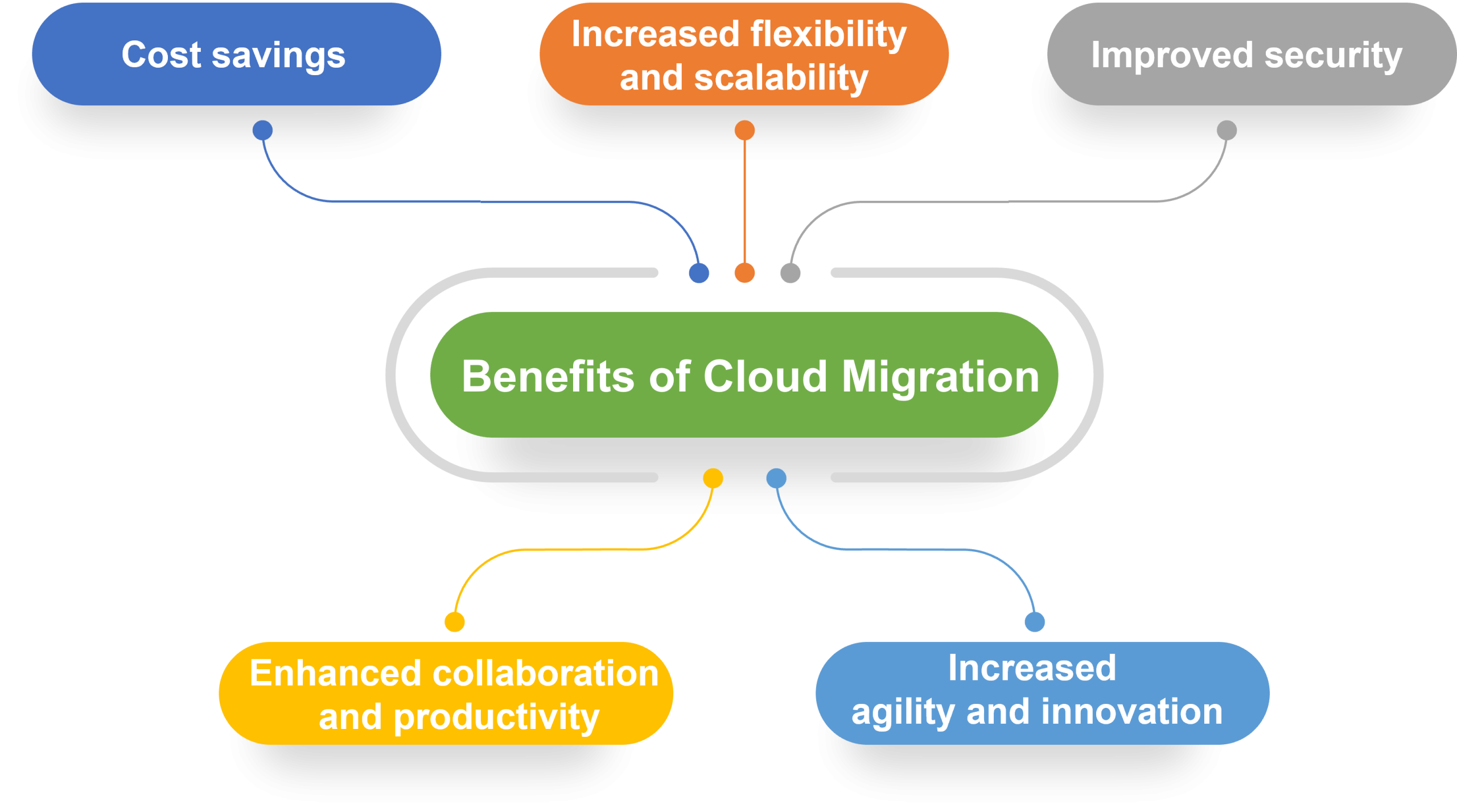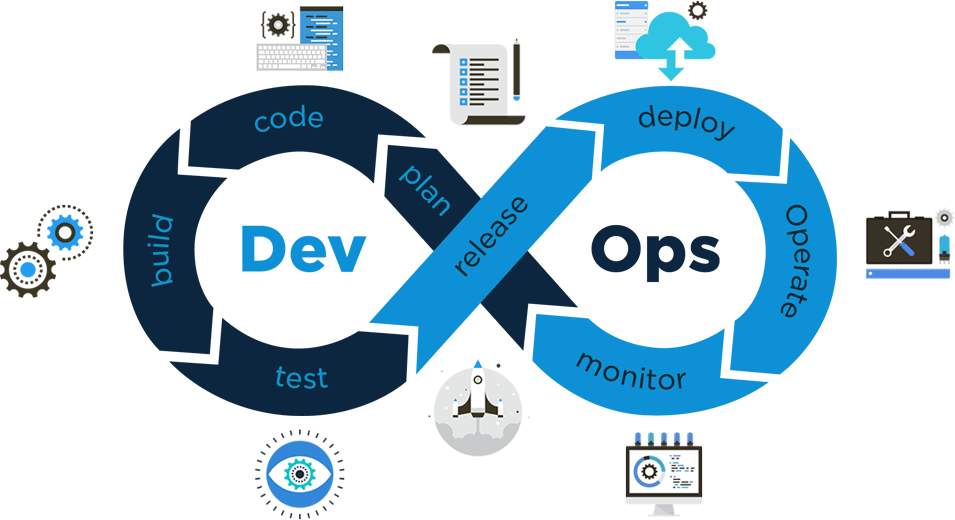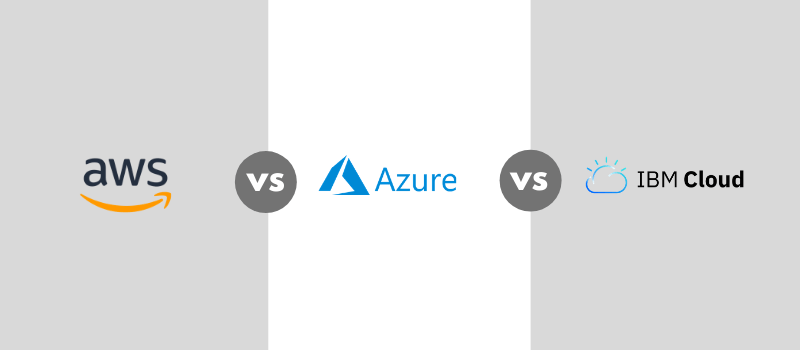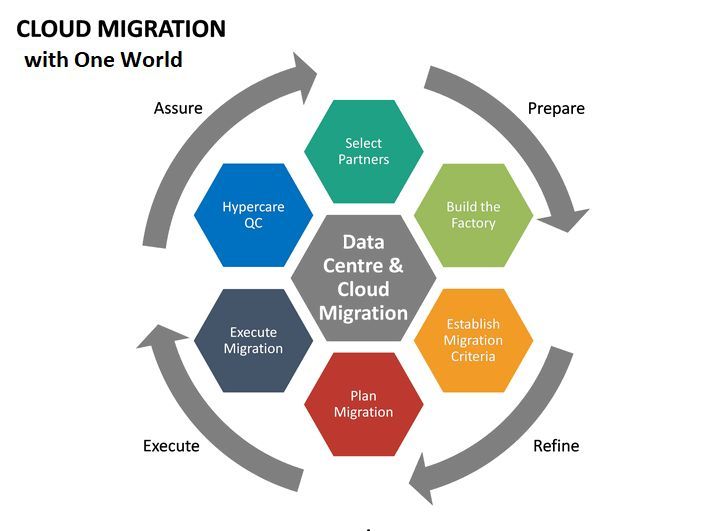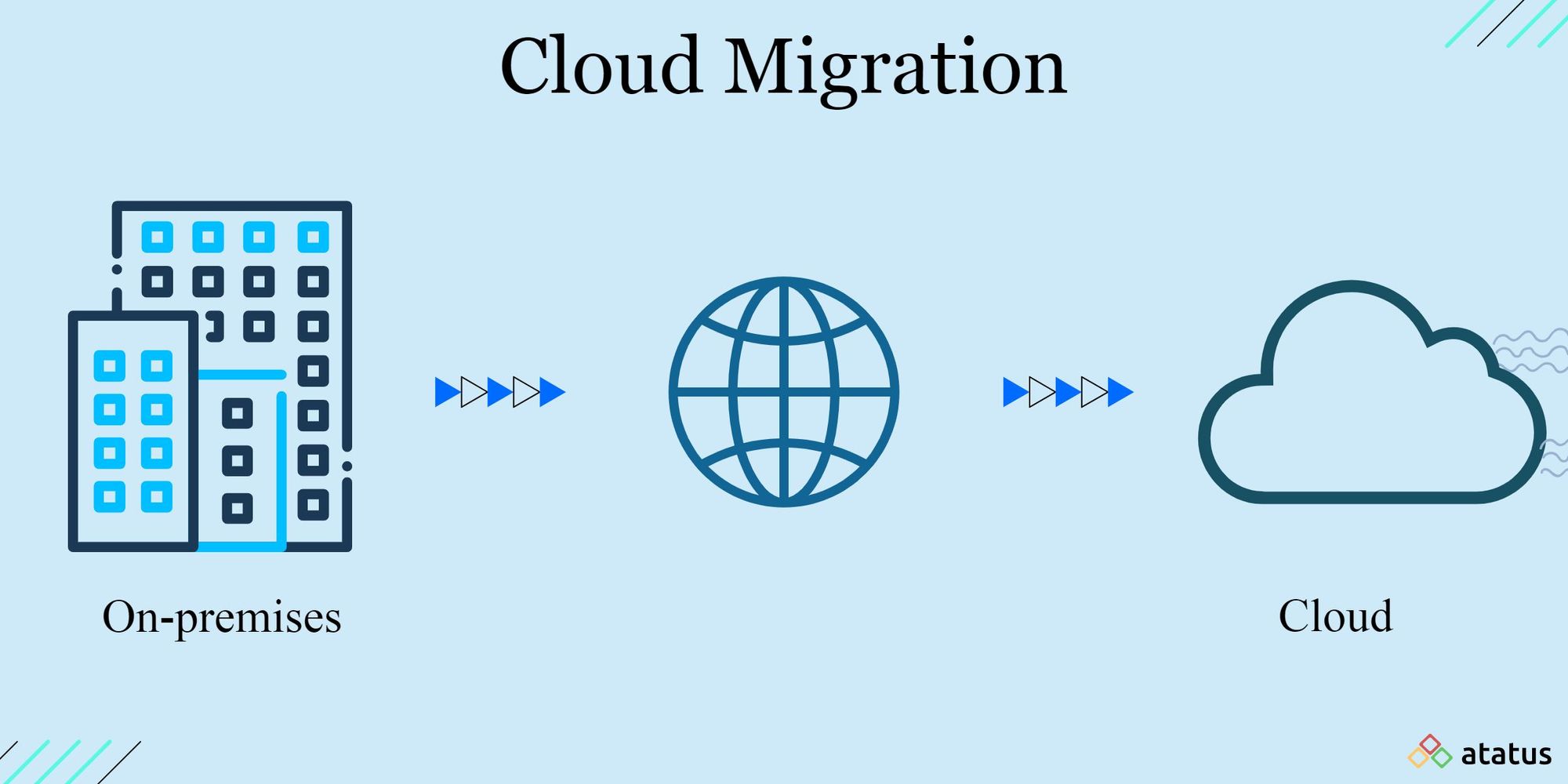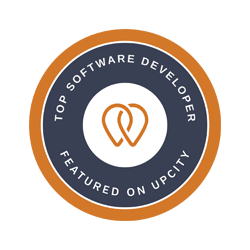What are the benefits of DevOps? Why is it becoming so popular?

Introduction
With progress in technology, businesses constantly endeavor to boost efficiency, foster cooperation and enhance output. An approach that has garnered substantial interest is DevOps, which involves merging development with operations processes for optimizing software formulation. This blog aims to outline what are the benefits of DevOps while delving into its growing popularity over recent years.
What is DevOps
DevOps, short for Development and Operations, is a revolutionary methodology in software development that unifies previously distinct domains of IT operations and software development. This approach prioritizes collaboration, communication, and integration between these crucial areas, optimizing the entire software development process. The primary goal is to dismantle barriers among developers, stakeholders, and end-users while promoting automation through tools facilitating processes like monitoring, code testing, and deployment. DevOps guarantees swift and efficient delivery of high-quality releases into production environments, maintaining rigorous standards of effectiveness and reliability. Embracing a continuous delivery model, it places a strong emphasis on quality assurance through perpetual testing, ensuring a seamless and iterative process aligned with Agile principles.
What are The Benefits of DevOps? Explore the Strategic Advantages of Software Development.
DevOps benefits represent a revolutionary approach to software development which not only fosters adaptability, flexibility, and sustained responsiveness but also embraces continuous improvement techniques, promoting teamwork and solidarity across diverse project cycles. Furthermore, by employing templated fundamental tools like Chef and Ansible, DevOps enables software teams to scale application performance and expedite speed delivery, promoting efficiency and effectiveness in software development. These crucial business benefits of DevOps are explained in detail below:
Improved Collaboration and Communication
The implementation of DevOps cultivates an environment that promotes better teamwork and transparent communication among the various teams engaged in software development. By breaking down conventional barriers separating operational duties from developmental procedures, these departments can work hand-in-hand to share knowledge and resolve obstacles together – resulting not only in expedited project completion but also fostering a more innovative and lively workplace atmosphere.
Increased Productivity and Efficiency
The integration of automation with DevOps is critical since it simplifies recurring duties such as monitoring, testing, and deployment. Besides minimizing the likelihood of human slipups, it empowers teams to concentrate on strategic and creative elements in development processes. In conclusion, this approach ultimately contributes towards improved efficiency and productivity throughout all stages involved in software creation.
Continuous Integration and Continuous Delivery.
Prioritizing Continuous Integration (CI) and Continuous Delivery (CD) is a crucial factor that sets DevOps apart from others. By automatically integrating code changes into a shared repository, CI enables frequent and prompt testing. Additionally, CD automates the release process allowing for fast and dependable deployment of updates. The use of this methodology not only hastens the process of development but also enhances the quality of software through unceasing testing.
Improved Quality and Reliability
Continuous testing is encouraged in DevOps to guarantee the immediate detection and resolution of any problems that may arise throughout all phases of software development. This dedication to excellence leads to improved, dependable releases. The early detection and rectification of defects during the developmental stage significantly decrease expensive errors in production, ultimately enhancing user satisfaction by providing reliable software products.
Reduced Time-to-Market
Reduced time-to-market is one of the key benefits of DevOps. Traditional development methods typically employ compartmentalized processes that often lead to delays resulting from unrelated team operations. DevOps effectively tackles this challenge by fostering collaboration among developers, operational staff, and other stakeholders – leading to faster developmental cycles and speedier product releases whilst also affording a competitive edge in the market landscape.
Enhanced Monitoring and Feedback
DevOps is characterized by its emphasis on implementing strong monitoring and feedback mechanisms. Teams can quickly pinpoint issues thanks to real-time tracking of applications and infrastructure, resulting in faster resolution times. Continuous feedback loops empower teams to glean insights from each release, refine their processes, and promptly adapt to evolving requirements or user input.
Scalability and Flexibility
One of the business benefits of DevOps is that it offers a sturdy framework that enables your businesses to readily scale their infrastructure and applications in response to evolving demands, which is essential for success in today’s business landscape where scalability and flexibility are crucial. With DevOps’ innate ability to adapt quickly, whether it be accommodating increased user traffic or adjusting to new market needs, companies can swiftly respond with efficiency when faced with changing circumstances.
Cost Optimization
Though introducing DevOps may require spending on both education and tools, the ultimate gains include considerable financial savings. Automating manual processes lessens dependence on human effort which results in lowered operational expenses. Furthermore, quicker time-to-market and higher quality help generate more revenue hence validating investment towards implementing DevOps methodology.
Security Integration
In DevOps, security is not just a separate development phase but rather an integrated aspect throughout the entire lifecycle. By adopting a shift-left strategy, emphasis on security begins at the early stages of product development which helps to reduce potential risks of breaches and ensure that a strong security posture is established.
Cultural Transformation
DevOps goes beyond its technical components and triggers a significant cultural shift within companies. It encourages an attitude of continuous progress, cooperation, and responsibility in individuals. DevOps breaks down conventional boundaries by promoting joint ownership across the entire development process leading to a culture that prizes creativity, flexibility, and unremitting pursuit of perfection.
Understanding Why DevOps Benefits Are Becoming So Popular?
The increasing popularity of benefits of DevOps can be attributed to several factors that align with the evolving needs of modern businesses:
- Agile Development: The DevOps approach harmoniously meshes with Agile development methodologies by equipping the required tools and practices to implement Agile principles fruitfully.
- Digital Transformation: As companies begin their digital transformation initiatives, the necessity for expedited and streamlined software development becomes increasingly important. In this era of technological revolution, DevOps acts as a catalyst by providing businesses with essential tools to compete and stay ahead in their respective industries.
- Cloud Adoption: The rise of cloud computing has radically transformed how application development, deployment, and management are approached. The adoption of the cloud is effectively supported by DevOps in enabling agile and scalable practices to develop applications that are best suited for a native experience within this new environment.
- Market Competitiveness: To remain competitive in a rapidly moving market, corporations must produce high-caliber software expeditiously. DevOps provides companies with the necessary techniques and resources to effectively meet marketplace demands.
- Collaboration Imperative: The necessity for enhanced collaboration and teamwork across multiple functions has become a crucial aspect of business operations. DevOps effectively supports this requirement by cultivating an environment that promotes shared responsibility and a collaborative work culture.
- Increasing Complexity: The complexity of modern software development is on the rise, owing to intricate architectures and multiple dependencies. Fortunately, DevOps offers a streamlined solution for managing this increased level of intricacy by facilitating smooth collaboration between operations teams and developers.
Why Should You Choose Liquid Technologies as your DevOps Partner?
In the dynamic realm of software development and operations, choosing Liquid Technologies as your DevOps partner ensures innovation, excellence, and many more benefits of DevOps for business. With a proven track record in comprehensive DevOps solutions, Liquid brings a wealth of benefits to businesses through its mastery of continuous integration, delivery, testing, monitoring, and security coordination. The core philosophy revolves around originality and personalization, underpinned by a customer-centric approach that places communication and teamwork at the forefront.
What sets Liquid Technologies apart is its dedication to staying ahead of the curve—utilizing the latest tools and conducting in-depth research in the DevOps domain. At the forefront is Liquid’s CEO, Hadi Tabani, a visionary leader with a hands-on understanding of real-world challenges, demonstrated through his successful delivery of DevOps solutions at T-Mobile. Hadi Tabani’s contributions have garnered acclaim, including the prestigious Innovation in DevOps Award from Accenture Global. By choosing Liquid Technologies, you align your establishment with a partner deeply committed.
CTA: Book your free DevOps consultation today!
Conclusion
To sum up, “What are the benefits of DevOps?” emerges as a pivotal inquiry in recognizing the transformative prowess of DevOps, which imparts an array of advantages, including expedited release times, heightened collaboration and productivity, increased efficiency, and enhanced software quality. Its widespread adoption finds roots in its seamless alignment with Agile methodologies, bolstered by support for digital transformation and facilitation of cloud integration, effectively addressing challenges posed by escalating complexity.
The choice of a DevOps collaborator, be it Liquid Technologies or another provider, pivots on crucial factors such as proven expertise, comprehensive solutions, innovation, customization, scalability, client-centricity, and continuous support. This focus on selecting a partner that resonates with the unique needs of the organization underscores the essence of the Benefits of DevOps for Business—empowering teams to adeptly navigate the dynamic terrain of software development and operations. In embracing DevOps, businesses strategically position themselves for heightened efficiency, collaborative prowess, and sustained improvement in the digital era.
FAQs
- What are the particular benefits of DevOps that brings to both software development and operational processes?
Employing the DevOps methodology presents various perks such as quickened release schedules, augmented teamwork, improved productivity, and enriched software standards. This technique fortifies a competitive stance in the industry by prioritizing top-quality software development while maintaining expedited time-to-market delivery.
- What are the benefits of DevOps that offer implementation in the domains of software development and operations?
DevOps enhances software processes with faster development, better collaboration, and increased efficiency which allows for a competitive advantage in the technology-driven world of today.
- In today’s rapidly changing technological realm, how does the benefits of DevOps for business impact?
The current ever-changing technological environment offers numerous advantages for businesses implementing DevOps practices, including boosting productivity and efficiency, and expediting product launches while fostering teamwork. This helps companies remain flexible enough to thrive in a fast-evolving space without compromising their competitiveness or resilience.
- In what way does the application of Business benefits of DevOps strategies impact the entire success, rivalry, and functioning patterns of a business in today’s digital age?
Implementing the Business benefits of DevOps strategies significantly impacts overall business success, competitiveness, and operational dynamics. Businesses experience expedited release times, heightened collaboration, increased efficiency, and enhanced software quality, fostering a culture of continuous improvement and adaptability.




